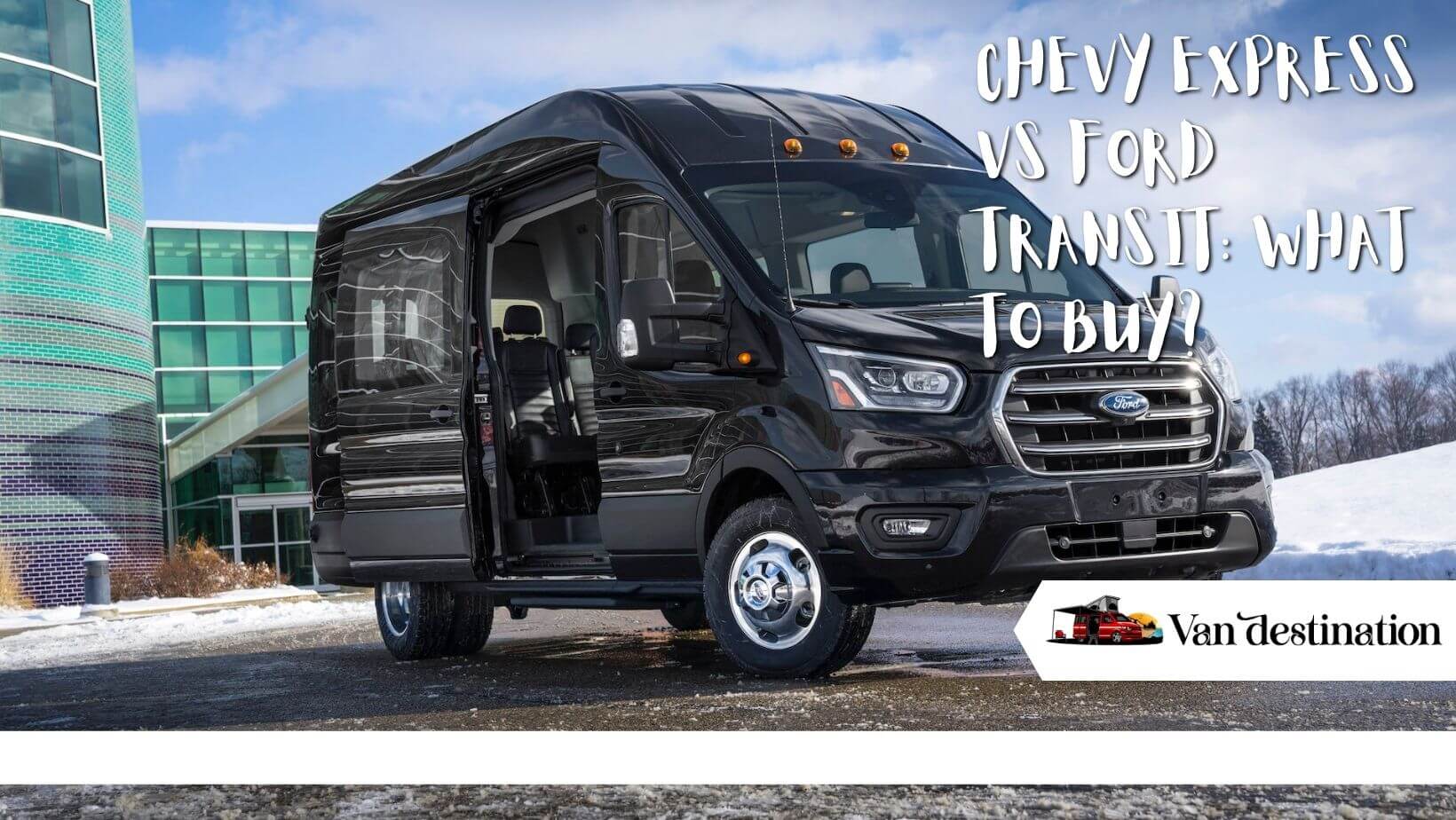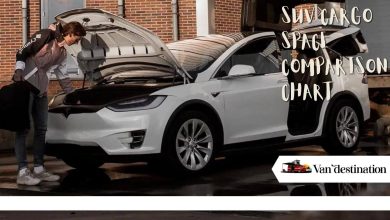Chevy Express Vs Ford Transit: How To Choose?

If you are in the market for a commercial van, you have likely narrowed your choices down to the Chevy Express vs Ford Transit. Both vans have their advantages, but which is best for your business needs? Let’s compare these two vans side-by-side to determine which one is right for you.
Features of Chevy and Ford: A Comparison of Two Iconic Brands
Chevrolet and Ford are two iconic American automobile manufacturers that have been competing in the market for decades. Both brands offer a wide range of vehicles, each with its own distinct features and characteristics. In this comparison, we will explore some of the notable features offered by Chevy vs Ford, highlighting their unique strengths.
Chevrolet:
- Performance and Powertrain Options: Chevrolet vehicles are often praised for their performance capabilities. The brand offers a diverse range of powertrain options, including powerful V8 engines in models like the Camaro and Silverado, providing exhilarating acceleration and towing capacity.
- Technology and Connectivity: Chevy vehicles come equipped with advanced technology features, such as the Chevrolet Infotainment system, which provides seamless smartphone integration, intuitive controls, and access to various entertainment and navigation features. Additionally, Chevy offers features like 4G LTE Wi-Fi hotspot capability, keeping passengers connected on the go.
- Safety Features: Chevrolet places a strong emphasis on safety, with many models equipped with advanced safety features such as forward collision warning, lane departure warning, blind-spot monitoring, and rearview cameras. The brand’s commitment to safety extends to its innovative Teen Driver technology, allowing parents to set limits and monitor their teen’s driving habits.
Ford:
- Ecoboost Engines and Fuel Efficiency: Ford has made significant strides in engine technology with its Ecoboost lineup. These engines combine turbocharging and direct injection to deliver improved fuel efficiency without sacrificing power. Ford vehicles, such as the F-150 and Mustang, benefit from the performance and efficiency of Ecoboost engines.
- Driver-Assistance Technologies: Ford is known for its suite of driver-assistance technologies, which include features like adaptive cruise control, lane-keeping assist, automatic emergency braking, and parking assist systems. These technologies aim to enhance safety and provide a more convenient driving experience.
- Ford SYNC Infotainment System: Ford offers its SYNC infotainment system, which allows drivers to control various functions using voice commands. The latest version, SYNC 4, provides a user-friendly interface, wireless smartphone integration, and over-the-air updates for added convenience.
- Aluminum Construction: Ford has incorporated lightweight aluminum construction in some of its vehicles, such as the F-150, resulting in improved fuel efficiency and enhanced payload and towing capabilities.
Chevy Express vs Ford Transit: Pros and Cons
When it comes to choosing a reliable and efficient full-size van for commercial or personal use, the Chevy Express and Ford Transit are two popular options. Each of these vehicles has its own strengths and weaknesses. In this comparison, we will explore the pros and cons of Chevy Express and Ford Transit to help you make an informed decision.
Chevy Express:
Pros:
- Durability: The Chevy Express is known for its robust construction and long-lasting durability, making it suitable for heavy-duty applications.
- V8 Engine Options: The Chevy Express offers powerful V8 engine options, providing ample horsepower and towing capacity for demanding tasks.
- Cargo Space: The Express offers generous cargo space, making it ideal for businesses that require ample room for transporting goods or equipment.
- Availability of All-Wheel Drive: The Express is available with all-wheel drive, enhancing traction and stability in various driving conditions.
Cons:
- Outdated Design: The design of the Chevy Express has remained relatively unchanged over the years, lacking the modern aesthetic and features found in some of its competitors.
- Lower Fuel Efficiency: Compared to some of its rivals, Express tends to have lower fuel efficiency, which can result in higher operational costs.
- Limited Advanced Safety Features: The Express may offer fewer advanced safety features compared to its competitors, potentially impacting driver and passenger safety.
Ford Transit:
Pros:
- Modern Design and Features: The Ford Transit boasts a modern design and a range of advanced features, appealing to those looking for a contemporary and comfortable driving experience.
- Multiple-Engine Options: The Transit offers a variety of engine options, including fuel-efficient EcoBoost engines, allowing customers to choose the powertrain that best suits their needs.
- Enhanced Maneuverability: The Transit’s compact size and responsive handling make it easier to maneuver in tight spaces, making it well-suited for urban environments.
- Extensive Safety Features: The Transit offers a wide range of advanced safety features, such as lane-keeping assist, adaptive cruise control, and automatic emergency braking, prioritizing driver and passenger safety.
Cons:
- Payload and Towing Capacity: The Transit, especially in its lower trims, may have lower payload and towing capacities compared to the Chevy Express, limiting its suitability for heavy-duty applications.
- Higher Cost: The Ford Transit generally comes with a higher price tag than the Chevy Express, which can be a consideration for those with budget constraints.
- Limited All-Wheel Drive Availability: While the Transit is available in all-wheel drive configurations, it is not offered on all models, potentially limiting options for those who require enhanced traction in various driving conditions.
How To Choose Between Two Vans
Choosing between a Chevy Express and a Ford Transit comes down to your individual needs as a driver or business owner. The Chevy Express is larger than the Ford Transit, with an interior volume of up to 250 cubic feet, while the Ford Transit has an interior volume of up to 246 cubic feet. The Chevy also offers more power, with its 6.0-liter V8 engine producing 276 horsepower and 298 lb.-ft. of torque versus the Ford’s 3.7-liter V6 engine that produces 275 horsepower and 260 lb.-ft. of torque.
The Chevrolet Express also offers more cargo space behind the rear seats than the Ford Transit, with 131 cubic feet compared to the 115 cubic feet offered by the latter vehicle. In terms of maximum payload capacity, however, both vehicles offer similar numbers; the Chevy offers 4386 pounds while the Ford offers 4539 pounds.
Conclusion
When looking at comparing a Chevy Express vs Ford Transit van it is important to consider all aspects from size, power, and cargo capacity to available options such as navigation systems or Wi-Fi hotspots. Ultimately it comes down to what type of job you will be doing with your commercial van and what other features will make your job easier or more efficient. Whether that be extra cargo space or an integrated navigation system. So do your research before making a decision. That said both vans offer excellent specs so either choice would be suitable depending on your needs.
Also Read: Electric Tankless Water Heater for Camper



